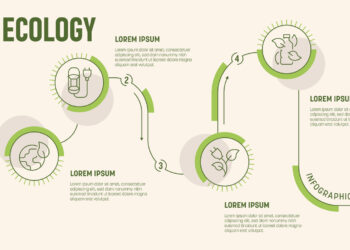As a blogger, I know there’s still a bias out there — that blogs are full of lousy editorial material and provide a suboptimal intellectual experience. The source of the bias usually becomes clear — a belief that if what you write is not in print, it must be substandard.
An article in a recent Chronicle of Higher Education shows how deeply this bias runs and how unaware of it even those supposedly attuned to new communication technologies can be. The story is about an initiative called PressForward, a new publishing platform meant to showcase the best online work from blogs and comments and the “gray literature.” Alfred P. Sloan Foundation is backing the venture with $862,000, and a variety of scholars, journalists, and publishers are advising on the project.
This paragraph is what revealed that an underlying print bias continues:
Asked how PressForward will work, Mr. Cohen sketched out a pyramid-like structure that could fish content from the torrent of automatically retrieved items and bump the most notable works into more prominent slots, with community members able to curate the material and suggest revisions. Blog posts that rise to a certain level could get promoted on a home page and tweeted out to the publication’s followers. The dozen or so best posts from the past few months could get bundled into a quarterly review published online and possibly even in print.
<sarcasm>Even in print?! You mean, like a phone book or a throwaway airport magazine? My thinking is going to be trapped by dirty marks on shredded trees* and distributed to a few hundred people after they’ve already been published on a platform that reaches 30% of the world’s population. What an honor!</sarcasm>
It gets back to the “Is Print An Elite Medium? Or a Medium for Elitists?” question.
Even with nearly a million dollars of support, a mission to feature the best online content, and a prestigious group of advisors, the ultimate reward remains . . . print.
* The phrase “dirty marks on shredded trees” was indelibly etched into my consciousness by Bill Hill, formerly of Microsoft, and the only Microsoft employee I’ve ever seen in a kilt.
Discussion
11 Thoughts on "Blogs Meet Academic Biases, Are Offered an Ironic Prize for Good Online Content"
Considering the normally careful analysis on Scholarly Kitchen, and how much detailed thought has occurred in this space that is close to what we’re trying to do with PressForward, I’m surprised by this reductionistic and sarcastic coverage. But as a fan and practitioner of reductionism and sarcasm myself, I’ll try not to be too huffy in response.
I think you latched onto a single phrase from a single interview about this project, rather than giving any real due to PressForward by, say, looking at its website. Your focus on the aggregation of blog posts also shows an “I’ll only read one article about this” superficiality that’s surprising for SK.
PressForward, as our site makes clear, is digital first. But it’s also flexible. If it’s important to a scholarly society or community to have an ePub or print edition (perhaps as a preservation path or for libraries), then that’s fine with us (but not required or maybe even common). The main point I was trying to make in that quotation is that there might be levels of review and promotion, from getting onto the home page of a publication to getting into a “Best of” collection, whatever form that may take.
I think the idea of PressForward is intriguing and necessary, and I applaud it. However, you have to admit, whatever led to the sentence in the CHE coverage that reduced the reward system to placing print at the pinnacle was worth a little ribbing. It’s also not something you or the CHE reporter have spawned alone, but a cultural attitude that needs to be deflated by facts, such as the fact that online publication can be a more effective way to reach people. That’s what I was trying to highlight — this persistent bias toward print as superior when, in fact, online distribution and publication is often superior, especially for good content. On that point, I’m wagering we strongly agree. As you note, we’re both pointed in the same direction.
So now “print” is a dirty word? What’s wrong with offering content in a variety of formats to serve the diverse needs of your audience? I note that your own Journal of Bone and Joint Surgery is available in, gasp, print. Are you horribly embarrassed to be associated with a product made of “dirty marks on shredded trees”?
I do get your point though–print still holds a certain level of prestige, particularly for bloggers. It’s a sign that someone thinks enough of your work to invest the funds needed to turn it into a print project (though these days that level of funding is getting lower). It’s also a rare opportunity for many bloggers to actually earn money for their blogging beyond the low level provided by banner ads. Personally, I’ve recently enjoyed reading this book, derived from a blog:
http://www.27bslash6.com/bellymessage.html
I’d already read many of the entries in the blog, but having it compiled in a print format has provided a different reading experience. Is the blog’s author doing himself a disservice by selling his writings in this format? Am I wrong for enjoying it?
As for PressForward, perhaps the most impressive thing about it is that someone managed to finagle $826,000 for creating “Digg for Scholars”. Maybe this is the new meme that’s going to replace the failed “Facebook for Scholars”. Given the low level of participation by the scholarly community in online forums, article rating services and commenting opportunities, I’m not expecting much here. Even if they manage to get the publication through some of the required hoops for legitimacy (PubMed indexing, impact factor, etc.), there’s still no impetus for voting or commenting. I can see why an author might like the added exposure, but who’s going to spend their valuable time doing the “community” work that the site is based on, and why?
Print has a place, there is no doubt. What I was gently (I hope) mocking was probably more the CHE reporter’s construction which made print sound like the pinnacle of prestige. Books from blogs can work, but they only work if the blog worked in the first place. Like journals that are still printed, books from blogs are derivative works of a larger, often better-read, online experience. Until we have a culture that puts print into the proper perspective — useful for some things, comparatively limited in many ways, and less effective at reaching readers in many instances — we won’t be spending money in the right places. I’m glad PressForward found someone visionary enough to see past this and give them some seed funding. But, as you note, they’re going to have an uphill battle for many reasons — print bias, scientific culture, aligning incentives, and so forth.
I don’t know, I read it more as an aside, rather than an ultimate goal. Maybe it will be in print if there’s demand, rather than the idea that print would legitimize things.
But don’t sell print short. Like all media, it has its shortcomings, but it does provide great portability, durability, high resolution and an excellent interface. It also sets one up for the sort of in-depth concentrative experience that’s difficult to replicate in the short-attention-span distractive online world.
I am delighted to see the advent of PressForward. Whether it will be successful or not, time will tell. But this is not the time to judge its future. We need more experiments, smart and stupid alike, because you can never tell what’s going to happen until you do it.
My one small wish is that credit had been given to the granddaddy of all these community sites, Slashdot.org, which is still going strong. It has been commercially successful from the beginning.
It should be noted that Slashdot differs from most community-based efforts in that it has a strong editorial staff that carefully curates and selects the stories it presents. Having that staff making those value judgments has made a huge difference:
http://www.wired.com/entertainment/theweb/news/2007/10/slashdot10year
When you’re building a system like this you’re balancing the wisdom of the crowds versus the tyranny of the mob. Sometimes a crowd is really smart, but some things don’t work so well by committee. Crowds work when you have a tightly knit group of people with similar interests, but when you have a loosely knit community you get “Man Gets Hit in Crotch With Football” and Everybody Loves Raymond, where it’s just good enough to not suck. At the end of the day I want to be able to say, “These are good stories.”
Surely it is not so much “print” as “independently edited” which most blogs are not and why, in the main, they provide a substandard reading experience. There is no substitute for having your work looked over by someone else before it is published, whether a book, a blog post or (via peer review) a journal article.
Remember that even though articles are readily available online now, some people still purchase offprints and hand them out to colleagues. Print retains a certain cachet even in the digital era.




